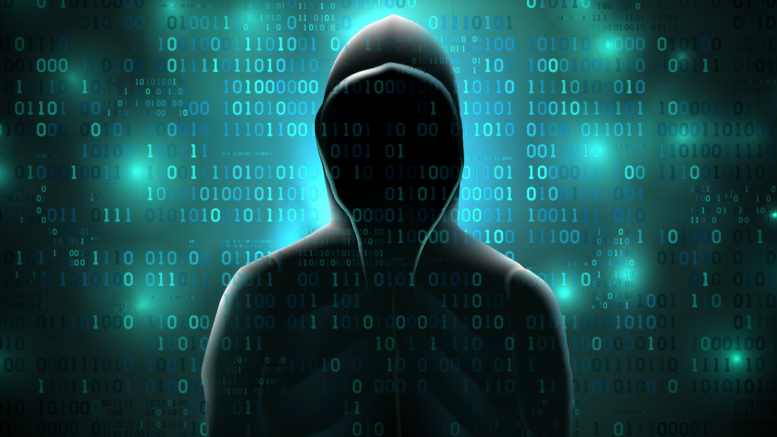The world is a scary place. And, for the last half century, at least the parts I can remember (oh, what a long strange trip it’s been), it has always been so. There’s always been the fear of something. But I’ll admit, maybe it’s my advancing age but it does seem like the last few years or so have seemed a bit scarier. Like someone’s upped the stakes as we head toward some sort of season finale. Of course there are reasons to be optimistic too, and that’s really the point here. For every thing you should be paranoid about, there’s a sunset, a favorite song, or the smile of a long-lost friend to balance it out. But enough philosophy. This is supposed to be a serious article.
Hackers are around every corner, and they’re smart
Here’s the best advice I ever got, from a police officer. They said, “You know how you have a job, and you’re good at it? Well for criminals, crime is their job.” And I think this applies double to hackers. The folks who want to steal your money, your files, and all that are pretty smart, and they’re pretty good at what they’re doing. And, as economic challenges grow, they get more determined.
That’s something that everyone should be thinking about. Spend some time thinking about how you’d hack someone else, if you were poor and really needed the money. Think about how you would get back at someone you didn’t like. And then, think about how you would defend yourself against those things you just thought up. It’s a start.
Passwords are a problem, and two-factor is a worse problem
I would say for over 99.9% of humanity, it is literally impossible to remember a unique password for every single site you visit. You can use a password manager, but that password manager needs a password, and once the hacker gets that, they have all your passwords. All that work you put in is lost.
We were all told that two-factor authentication would be the solution. You know about two-factor authentication, or 2FA. It’s like, when you get a code on your phone so you could log in to a web site on your computer. It sounds really secure. In fact it’s so annoying that you spend a decent amount of time thinking, “this had better be worth it.” If you work on a PC and don’t save passwords on your phone, then ok maybe. But for the most part I’m here to tell you that 2FA has a glaring problem. If you try to log in to something on your phone, where’s it going to send the code? Right. To your phone. Which means, it’s essentially useless.
There are a few things you can do. Here they are.
It may never get to the point where the risk of hacking is zero. In fact, the most likely reason you haven’t been hacked is because no one is trying to hack you. We call this “security through obscurity.” It’s a pretty weak strategy, but sometimes it’s all you have. Luckily there are a few ways to keep hackers at bay.
1. Use biometrics on your phone
They’re not perfect, but fingerprint ID and facial recognition are better than nothing. They won’t stop a hacker from getting into your phone if they are holding you at gunpoint, but it will stop a hacker who finds your phone. That’s something. If you can use biometrics on your computer as well, do so. This capability is on most Macs and some PCs.
2. Enable “find my” on your phone (and computer, too.)
Most folks know that iOS and Android have “find my” features on their phones, but most folks don’t know that Windows has it too. Windows doesn’t let you remote wipe a computer, but at least you’ll know where it is. If you lose your phone, wipe it immediately. Whatever is on there is probably saved in the cloud anyway. It’s not worth the risk.
3. Be smart and don’t save certain passwords
USe a password manager if you must, but there are some passwords you shouldn’t save. Trust me, you have it in you to remember four or five passwords. Don’t save your email/Google Account password, or your Microsoft or iCloud account. Don’t save your bank passwords or credit card account passwords. If you must, write them down but it’s just better if you memorize them.
4. Use long passwords if you can’t use those weird random ones.
If you can’t use totally random passwords, at least make your passwords long and hard to guess. In most cases you can use a whole sentence as a password if you want. Choose something that makes sense to you but don’t choose a song lyric or movie quote. A hacker could google the rest of it if they got a little bit.
It’s best if you can scramble things up a bit, too. A password like “a little bit of wine cheese will have rabies” is better than “a little bit of wine goes well with cheese.”
5. Change your passwords a lot.
I know, everyone says to do this and no one does it. But if you make a habit of changing the passwords to anything financial every 6 months or so, you’ll feel good about yourself and it will be more likely that you won’t get hacked.
This article was brought to you by Solid Signal. Shop SolidSignal.com for everything you need to live your best digital life. Call us during East Coast business hours at 888-233-7563 if you have questions.





